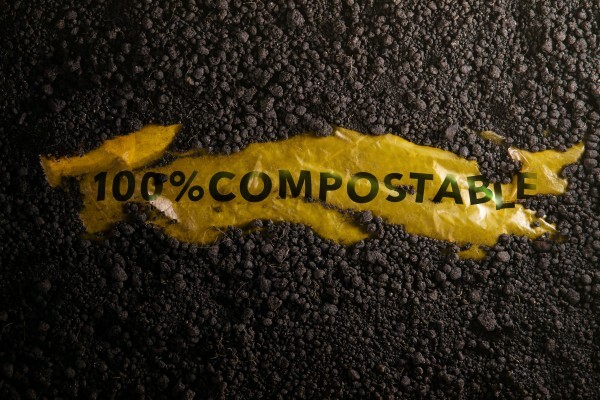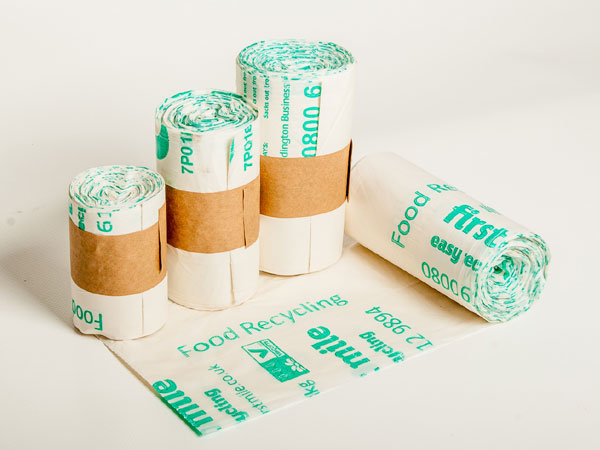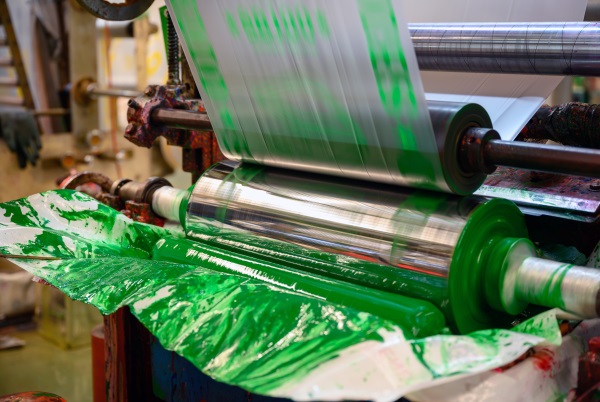
Plastic, a versatile and indispensable material, has transformed countless industries and improved daily life in numerous ways. However, the challenge of managing plastic waste has led to the development of innovative solutions that enhance sustainability.
Compostable polythene bags represent a significant advancement in this field, offering a sustainable alternative for waste management. These bags decompose naturally, contributing to a healthier environment and supporting a greener future. Abbey Polythene is at the forefront of this movement, providing a comprehensive range of compostable bags tailored for food and green waste disposal.
What Are Compostable Polythene Bags?
Compostable polythene bags are designed to break down naturally into non-toxic components under composting conditions. To ensure their eco-friendliness and reliability, compostable bags manufactured by Abbey Polythene comply with the stringent DIN EN 13432 certification, a globally recognised standard for compostability.
These bags are crafted using specialised materials and processes that enhance their strength and durability while maintaining their biodegradable properties, making them ideal for sustainable waste disposal solutions. By choosing compostable polythene bags, manufacturers can continue to benefit from the versatility and utility of plastic while contributing to a greener future.
Environmental Benefits of Compostable Polythene Bags
Support for Sustainable Waste Management:
Compostable polythene bags play a vital role in sustainable waste management, particularly in the disposal of food and green waste. These bags are designed to handle organic waste effectively, making them ideal for both domestic and commercial use.
By facilitating the proper segregation of compostable waste, they help divert organic material from landfills, where it would otherwise generate harmful methane emissions, a potent greenhouse gas contributing to climate change.
Lower Carbon Footprint:
 The production of compostable polythene bags involves eco-friendly processes, often using recyclable and renewable materials, which help minimise their overall carbon footprint. At Abbey Polythene, waste polythene is repurposed into granules that can be used to manufacture new products.
The production of compostable polythene bags involves eco-friendly processes, often using recyclable and renewable materials, which help minimise their overall carbon footprint. At Abbey Polythene, waste polythene is repurposed into granules that can be used to manufacture new products.
This practice not only reduces waste during production but also promotes sustainability by creating a closed-loop system, further lowering the environmental impact associated with bag manufacturing.
Support for Circular Economy:
Compostable polythene bags align perfectly with the principles of a circular economy, where materials are designed to be reused or returned to nature. Once their purpose is fulfilled, these bags either decompose into organic matter that enriches the soil or are recycled into new products.
This ensures that resources are used efficiently, reducing dependency on raw materials and promoting an environmentally friendly cycle that benefits both businesses and the planet.
Practical Advantages of Compostable Polythene Bags
Versatility in Waste Disposal:
Compostable polythene bags are highly versatile and cater to a range of waste disposal needs, from domestic kitchen waste to large-scale commercial waste management. They are particularly suited for disposing of food and clinical waste, ensuring proper segregation and eco-friendly disposal.
These bags come in various sizes and gauges, providing flexibility, and added strength for handling different types of waste efficiently, making them a practical choice for both households and businesses.
Customisation Options:
A standout feature of compostable polythene bags is their customisation potential, allowing businesses to incorporate branding into their waste management practices. Abbey Polythene offers custom printing options, including one-sided or double-sided designs, as well as random or fixed patterns.
Clients can utilise existing artwork or work with us to create bespoke designs. This customisation enhances brand visibility while showcasing a company’s commitment to eco-friendly practices, offering both functionality and promotional value.
Ease of Use:
Designed with user convenience in mind, compostable polythene bags are available in formats that simplify handling and storage. Customers can choose bags supplied loose for quick access or on perforated rolls for efficient dispensing, depending on their specific needs.
This adaptability ensures a smooth waste disposal process, whether for personal or professional use. by combining practicality with eco-conscious design, these bags provide an effective and user-friendly solution for sustainable waste management.
Compostable Polythene Bags vs Traditional Plastic Bags
 The key difference between compostable polythene bags and traditional plastic bags lies in their decomposition timelines. Compostable bags are designed to break down naturally within a short period under composting conditions, leaving no harmful residues. in contrast, traditional plastic bags have a longer decomposition timeline, but they are still widely used for their durability and versatility.
The key difference between compostable polythene bags and traditional plastic bags lies in their decomposition timelines. Compostable bags are designed to break down naturally within a short period under composting conditions, leaving no harmful residues. in contrast, traditional plastic bags have a longer decomposition timeline, but they are still widely used for their durability and versatility.
Compostable bags significantly enhance environmental sustainability by minimising waste accumulation and supporting sustainable waste management practices. They offer a practical and more eco-friendly alternative, ensuring that the benefits of plastic are maintained while reducing potential environmental impacts.
Abbey Polythene’s Commitment to Sustainability
Abbey Polythene is dedicated to enhancing environmental sustainability through innovative practices in our manufacturing processes. A key aspect of this commitment is the use of polythene granules derived from waste materials, which are repurposed to produce new products. This recycling process ensures minimal waste generation while contributing to a circular economy.
We use eco-friendly manufacturing techniques that reduce carbon emissions and prioritise environmental responsibility. While we at Abbey Polythene recognise the versatility and essential role of traditional plastic in various applications due to its durability and regulatory compliance, we strive to manufacture these products as sustainably as possible. By turning waste polythene into reusable granules, we ensure that essential plastic production aligns with our green principles.
In summary, compostable polythene bags offer significant environmental benefits by supporting sustainable waste management, lowering carbon footprints, and promoting a circular economy. We encourage you to consider integrating compostable options into your waste disposal needs to contribute to a healthier planet. Abbey Polythene stands as a trusted provider in this field, offering a comprehensive range of high-quality compostable bags tailored to various requirements.
With samples available upon request, Abbey Polythene is ready to assist you in making a sustainable choice for the future.